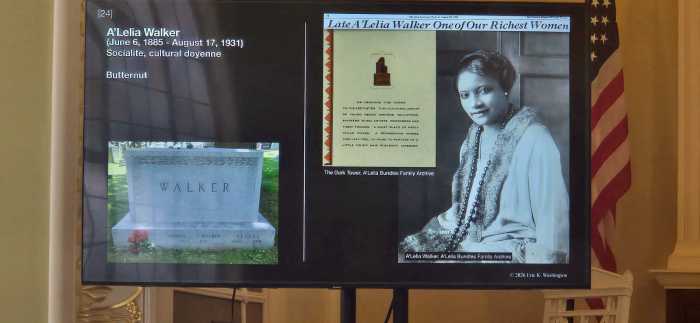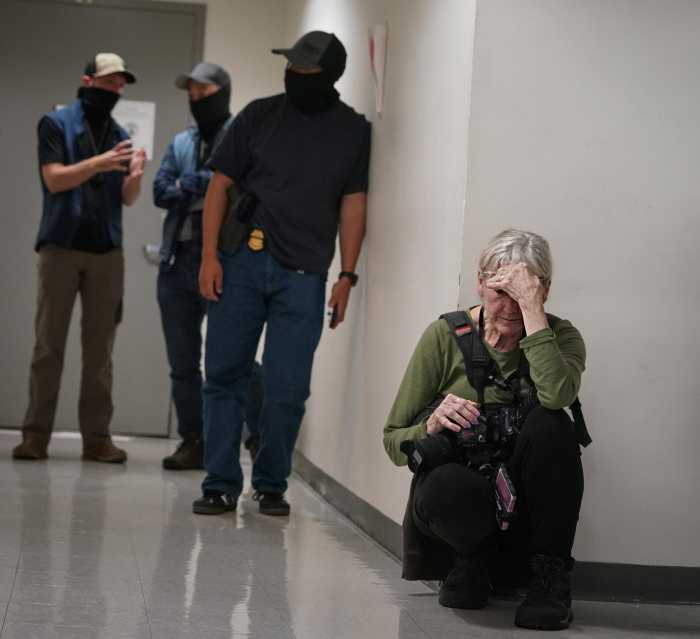US District Judge Thomas L. Parker issued a temporary restraining order blocking Tennessee from enforcing a new law intended to prevent children in the state from seeing drag performances. The law, which had recently been signed by Governor Bill Lee, was scheduled to take effect on April 1. Parker issued his order on March 31.
The temporary restraining order is in effect for two weeks to give the parties in the case time to prepare for a status conference about whether the court should extend the TRO, which could be turned into a preliminary injunction that would block the law until the court issues a ruling on the merits of the case.
The law makes it a crime to perform “adult cabaret entertainment” in “any location where the adult cabaret entertainment could be viewed by a person who is not an adult.” The law defines “adult cabaret entertainment” as single or multiple performances by an entertainer that are “harmful to minors… and that feature topless dancers, go-go dancers, exotic dancers, strippers, male or female impersonators, or similar entertainers.” A first offense is a misdemeanor and a repeat offense is a felony. It is clear from the legislative debates about this measure that it was intended to deter the staging of drag performances anywhere persons under 18 years old are present, based on assertions by Republican legislatures that they are protecting children from exposure to “sexualized” performances that are not age-appropriate and thus “harmful” to minors.
Friends of George’s, Inc., the plaintiff in this case, is a non-profit organization based in Memphis that produces “drag-centric performances, comedy sketches, and plays.” It has one such program scheduled for mid-April, and was concerned about whether they would have to prohibit minors from attending. They argued in their petition for the temporary restraining order that the statute is unconstitutional. The state responded by arguing that the plaintiffs lacked standing to bring the lawsuit in federal court because the measure has not been enforced against them yet.
Judge Parker agreed with the plaintiffs that drag shows would be considered expressive conduct and thus protected under the Freedom of Speech provision of the First Amendment of the Constitution. The state claims that this is a permissible “time, place and manner” regulation, not a “ban” on drag shows. The judge pointed out that it does not regulate time, only place — and then so broadly that the place could be anywhere. The legislature’s decision to attach criminal penalties to violations sharpens the First Amendment analysis, because, as plaintiffs argued, the language of the statute is sufficiently vague and broad to make it unclear whether, for example, they risk criminal penalties if they put on their show and a child is in attendance.
Judge Parker found that Friends of George’s has enough at stake in this case to meet the standing requirements. “Because the Statute has not gone into effect,” he wrote on March 31, “granting a TRO will grant Plaintiff relief by preserving the status quo.”
Turning to the First Amendment arguments, the court concluded that the plaintiffs have three viable theories to attack the provision. First, the court agreed that it is a “content-based” regulation of speech. Such regulations are presumptively unconstitutional and the burden is on the state to prove it is “justified by a compelling governmental interest and it is narrowly drawn to serve that interest.” The court pointed out that the state had not yet presented a “compelling governmental interest” to be evaluated by the court. In fact, one of the named defendants in the case, Shelby County District Attorney General Steven J. Mulroy, stated in court that he was not opposed to granting the TRO.
The court also noted that the law is redundant, because Tennessee already has an obscenity law that would cover “much of the conduct that the Statute seeks to punish.”
The bill’s sponsor, Republican State Representative Chris Todd, stated on the floor of the General Assembly that the bill was “intended to cover conduct like that which he dealt with in [his own] community this past year,” when a lawsuit he had filed “forced Jackson Pride to move the family-friendly drag show indoors and to apply age restrictions” for fear they would be prosecuted under the obscenity law.
Furthermore, wrote the judge, he “finds that the Statute is likely both vague and overly-broad,” which are fatal defects in a criminal statute. The existing adult cabaret law provides that adult performances must be limited within the boundaries of adult-oriented businesses, but this statute “reaches the conduct of performers virtually anywhere” that they might be viewed by somebody who is not an adult. Rep. Todd was hot and bothered about a drag-show during Pride in a public park, but other concerns were expressed about drag “story hours” in libraries, book stores, and schools. Judge Parker expressed concern that the statute’s language was not specific enough to give fair warning about where it would be applied.
“Plaintiff alleges that it has been engaging in this type of speech since 2011 without incident, and that granting the TRO will cause no harm ‘other than potential dissatisfaction by some legislators and member of the public who are under no obligation to attend’” plaintiff’s events.
“The United States Constitution — a law that is supreme even to the Tennessee General Assembly’s acts — has placed some issues beyond the reach of the democratic process,” wrote Judge Parker. “First among them is the freedom of speech. If Tennessee wishes to exercise its police power in restricting speech it considers obscene, it must do so within the constraints and framework of the United States Constitution. This Court finds that, as it stands, the record here suggests that when the legislature passed this Statute, it missed the mark.”
Judge Parker was appointed by President Donald J. Trump.


































